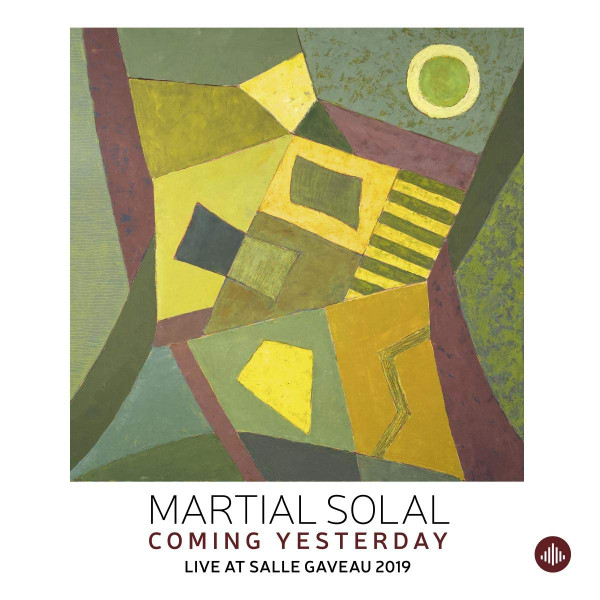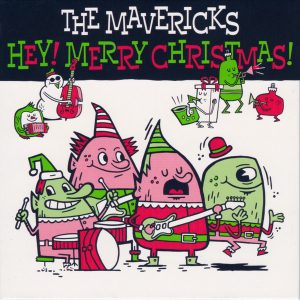
Coming Yesterday: Live at Salle Gaveau 2019 (Challenge / DistrArt Musique)
Martial Solal
Released April 2021
Grand Prix de l’Académie du Jazz 2021
YouTube:
https://music.youtube.com/playlist?list=OLAK5uy_ldMP0pgpiRWfckNGd1QK02MYWcBHYdAOo
Spotify:
About:
Coming Yesterday is the recording of what turns out to be Martial’s last concert, he decided to stop playing piano after that show:
Martial Solal
“When I walked onto the stage on January 23, 2019, I did not yet know that I would decide not to play piano anymore after this concert, more than seventy years after my debut. To maintain a certain level, this instrument requires your daily attention; it requires delicacy, brutality, and especially energy. I have lived with these demands all my life, with the joy of seeing the progress, the technical and musical advances, the rhythmic and harmonic enrichments that we acquire over time. Of course, everything goes very fast at first. As long as you are gifted, if you spend a little time on it, if you listen to what was done before you, if you choose a path, everything may seem easy. Progress is rapid, illusions are immense, and then walls arise, walls that you want to reach and overcome. Seventy years to achieve this is a minimum… When energy is no longer available, it is better to stop.
I had the impression on January 23 of having reached the beginning of a path that I would have liked to continue, after so many years of improvisation, of creation, based on what are called standards, which I call pretexts, challenges, essay topics that you can develop in a thousand and one ways according to the evolutions that arise in your mind or in your circle of musicians. The standards have gone out of fashion, replaced by other themes that most of the time may not have the qualities to become standards, the so-called “originals”. All musicians considered themselves composers, free jazz burst onto the scene and swept away old themes, eliminating the difficult rules of stability of tempo, harmony and melody. Some standards have survived, and those you will discover can be described as indestructible. They are always only pretexts for expressing ideas, but with relaxed rules, the rubato being entitled to be cited as well as accelerations, atonality or the absence of a continuous tempo.
That is what I was thinking on January 23. Part of this concert seems to reflect my knowledge to this date. For me, jazz remains that of the twentieth century, the one that saw the birth of New Orleans, middle jazz, be-bop, and free jazz. The first three of these jazz eras were built on ternary rhythms. Charlie Parker may have been the first to use sixteenth notes on a medium tempo, abolishing the necessity of this permanent balancing called swing that has disappeared in this form with the emergence of binary rhythms and phrasings. This style of rhythm no longer corresponds to what I considered essential. I preferred a greater freedom, playing on the melting of keys, rhythms, duration, style, rather than on the forced slavery of the “new” ones. Great freedom requires a lot of work. I’ve done my share. I want to thank those who helped me, who helped me progress thanks to their encouragement or criticism, to those who were kind enough to play alongside me, for me, who often played my compositions for years. Too bad for all those who have missed out what I have tried to offer them. Progress is a very selfish happiness. I feel as if I have sown a blade of grass during this concert, showing a direction that I would like to see continue. In some places, this grass has already grown enough to be considered a musical testament… improvised”.
Track Listing:
1. I Can’t Get Started (Vernon Duke, Ira Gershwin) 06:55
2. Coming Yesterday (Martial Solal) 11:40
3. Medley Ellington (Juan Tizol, Billy Strayhorn, Duke Ellington) 07:05
4. Sir Jack (Martial Solal) 04:36
5. Tea for Two (Irving Caesar, Vincent Youmans) 06:38
6. Happy Birthday (Standard) 04:35
7. Lover Man (James Sherman, Roger Ramirez, James Davis) 09:25
8. I’ll Remember April (Patricia Johnston, Don Raye, Gene de Paul) 04:54
9. My Funny Valentine (Lorenz Hart, Richard Rodgers) 05:59
10. Have You Met Miss Jones (Lorenz Hart, Richard Rodgers) 04:26
Personnel:
Martial Solal: piano
Record on January 23, 2019 at the Salle Gaveau, Paris, by Alexander Martin, Olivier Leroux
Artistic Sound Director: Patrick Lérisset
Mixed by Holger Siedler
Mastered by Georg Niehusmann
Product Coordination: Boudewijn Hagemans
Cover Painting: Anna Solal
Photography by Xavier Prévost
Artwork: Juan Carlos Villarroel, Natasja Wallenburg
Producer: Volker Dueck
Concert Produced by Yves Riesel
Review:
After 92 years of surmounting life’s obstacles, Martial Solal has decided to throw in the towel. Born Jewish in Algeria in 1927 while the French were still running the country, the wartime anti-Semitic Vichy authorities prevented his attending school and music lessons. Unfazed by the Nazis, Solal educated himself by imitating music heard on the radio.
The airwaves he heard must have been jumping because, after settling in Paris in 1950, in no time he became first call piano player for the heavy hitters of jazz, regardless of style: Django Reinhardt, Sidney Bechet, Don Byas, Stan Getz and Lee Konitz. Crossing the Atlantic in 1963, he wowed the Newport Jazz Festival. And when he opened at Manhattan’s Hickory House club, queues wound around the block. Solal has appeared on some 135 albums and has been responsible for 40 movie scores. His solo appearances in London, at King’s Place in 2009 (reviewed here) and the following year at Wigmore Hall (reviewed here) were critical successes and totally sold out.
Almost a decade later in 2019, and after the concert recorded here, at Paris’s Salle Gaveau, he decided that this would be his last concert. As he says in his album sleeve notes: “when I walked onto the stage…I did not yet know that I would decide not to play piano anymore after this concert”. Fortunately, an expert team headed by artistic sound director Patrick Lerisset was on hand to record the proceedings.
Solal had always wanted his performances to appear very easy, even when the going was very difficult, although stressing that high-level maintenance of technique was impossible without daily dedication: “as long as you are gifted, if you spend a little time on it, if you listen to what was done before you, if you choose a path…progress is rapid, illusions are immense, and then walls arise, walls that you want to reach and overcome”.
For this final programme, he chose apparently conventional material or what he calls “indestructible” standards (including two examples universally imprinted on every memory: “Happy Birthday” and “Sir Jack”, an undisguised ‘Frere Jacques’). They serve a function: “…pretexts for expressing ideas, but with relaxed rules, the rubato being entitled to be cited as well as accelerations, atonality or the absence of a continuous tempo”.
“Indestructible” standards are Solal’s method of offering tantalising clues to navigate his performance. Familiar hints of melody and echoes reappear randomly throughout, seldom the same way twice. The warhorse jazz themes (Vernon Duke and Ira Gershwin’s “I Can’t Get Started”; Juan Tizol’s “Caravan”; Duke Ellington’s Sophisticated Lady; Youmans and Caesar’s Tea For Two; Ramirez’s Lover Man; De Paul, Johnson and Raye’s I’ll Remember April; Rodgers and Hart’s My Funny Valentine and “Have You Met Miss Jones”), provide his audience with a guide to appreciating and unlocking his art.
It might be fanciful, but this reviewer senses a visual dimension to his work. Solal the intellectual approaches his subject matter much in the manner of Cubist painters. Amongst flurries of notes, complete melodies are never clearly stated. Fragments of the whole are surveyed from multiple angles, each facet examined and revealed in different voicings and registers, altering perspective, colour and form. All magnificently placed because Solal is a master of time and space.
Yet another modern master, Paul Klee, described his own intricate, witty drawings as ‘taking a line for a walk’. Solal, eager to show the interconnectedness of everything, takes his tunes ‘for a walk’, sometimes strutting, sometimes ambling like a boulevardier, constantly bumping into familiar snatches of other melodies, frequently a brief conversation with an earlier song and then an unexpected departure towards a different direction. The piano is his canvas: in his Ellington medley, “Caravan”’s oriental theme emerges from clusters of sounds (much like the pointilliste manner of Seurat) as if it were being gradually perceived through a Saharan heat haze and continues to collide with “Sophisticated Lady”, shards of both melodies reappearing in a continuum, interceding with later songs. All fine examples of what critic Whitney Balliett called “the sound of surprise”.
He revels in juxtapositions: his “Tea For Two” ends with a tag from Beethoven. The Parker/Harris bebop anthem, ‘Ornithology’, raises its head in “Happy Birthday”. In the space of a few bars, he might dart between Chopin, Satie, Debussy, Ravel and Monk, employing a raft of pianistic effects: stride, block chords, bebop phrases, bass end rumbles, modulations, whole tone runs and obscurely substituted chords. Solal is always serious but never solemn. Eternally playful and cavalier about conventional melodies or harmonies, he might insert them mischievously as fleeting landmarks: “I preferred a greater freedom, playing on the melting of keys, rhythms, duration (and) style”.
But after 70 years of devoting himself to his art, Solal decided enough was enough: “when energy is no longer available, it is better to stop”. As he said farewell to the audience at the end of this recital, he may or may not have actually made his decision; there were certainly no histrionics. Laying his fingers on the Steinway keyboard for the final time in public, he played a single resolving chord.
Just one. Finis.
Leonard Weinreich (UK Jazz News)





